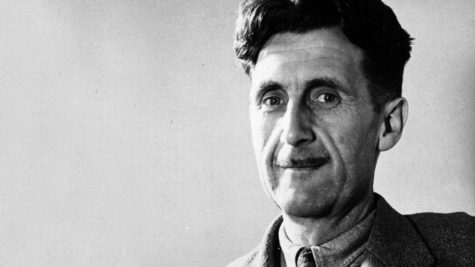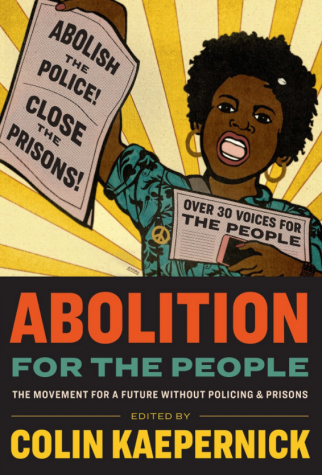Commentary on Paul Thomas Anderson’s “There Will Be Blood”
The United States has a weird history when it comes to our economy. We pride ourselves on capitalism, and the idea that “The freer the market the freer the people.” However, this idea has been corrupted in modern years, with multinational corporations absorbing more and more of what should be a fair market. Some films have tried to tackle this subject, but none do this better than Paul Thomas Anderson’s There Will be Blood. Released in 2007, the film follows the story of Daniel Plainview (called D.P. in this article for convenience), a ruthless businessman working his way up the ladder of wealth during the turn of the 20th century. The film does a masterful job of exploring how the oil industry preyed on people willing to work for anything, and how people with a lack of moral code ended up on top. Throughout the story, we see D.P. abuse his power and relationships in order to get what he wants: more land for oil. This article is going to take a dive into the deeper connections between this story and the reflection on our country’s value system. However, I cannot discuss this at length without heavy spoilers ahead.
Spoilers ahead:
We start off the movie with D.P. mining for ores in an abandoned mineshaft. The filmmaker immediately establishes D.P.’s lack of expertise in mining with the numerous injuries he suffers in the opening sequence. The movie expresses that this is how D.P.’s personal journey to greatness starts, happening in the film after D.P. crawls his way out of the mineshaft with a broken leg. Jumping forward from 1898, the time frame of the beginning 5 minutes of the film, the main plotline of the film begins to take place around the year 1911. By this point, D.P. has become a salesman for oil who buys up land in order to drain the supply under it. We see that neither D.P. nor the work environment fosters kindness, but rather encourages and rewards cutthroat behavior and deceitful tactics. D.P. uses his knowledge of the business to lowball prospective sellers into settling for a lower price than they should be getting. However, while the movie portrays this as an evil act, this was not illegal at the time. D.P. works using the systems in place to his advantage, regardless of fairness or equity.
When the main plot kicks off, D.P. becomes interested in land owned by the Sunday family, of which the “villain” Eli is a member. When D.P. discovers the economic potential of the land, he immediately lies to the family about his true intentions; covering his desire for oil with the facade of quail hunting territory. Every time D.P. talks to new people he wants to swindle, there is a different story he tells about himself. Whether it’s a tale about his supposed wife’s death giving birth to his boy, or his boy’s need for fresh air and hunting grounds, D.P. is willing to say anything to get his way. However, this is where Eli starts to question D.P.’s story. He immediately becomes the main voice speaking against D.P. and his oil schemes, and the film paints him as a nuisance with a weasel-like personality. This ends up leading to the main fight in the film when neither men refuse to budge. Later, when D.P. is approached by the biggest names in oil at the time, he turns down millions of dollars only because he wants more for himself. Greed is a huge motivator for D.P. which filmmakers validate throughout the story with D.P. continuing a streak of success with his oil business. We never really see D.P. pay an economic price for his greed, so it can’t help but make you think: what is the filmmaker trying to get us to think about?
Eli embodies everything that D.P. is not. He is kind to his community, he is faithful to his God, and he emphasizes truth and trust with his congregation. However, even though Eli’s morals are good in the film, he is portrayed as one of the most insufferable characters in modern cinema. In almost every conflict that edges past words, Eli immediately cowers in fear. I feel as if this choice of personality was intentional for a few reasons. Mainly, these two characters embody different forces in this world. D.P. is the embodiment of business and data, while Eli embodies everything moral and righteous. So the conflict between these two men is more than just physical words and actions, but rather a battle of two different ways of living. Connecting this to the central theme, capitalism relies on entrepreneurship, something that D.P. practices heavily. Additionally, it has no room for feelings or emotions, rather strictly relying on the cold hard data collected from past studies and experiences. In our country’s example, this form of capitalism has worked to set up systems that reward people who leverage advantages to benefit themselves, and has punished those who choose not to participate (which is exactly what Eli is doing). The statement this film is making on capitalism feels like it is playing both sides at once. While you have Eli clearly outshining D.P. in moral purity, D.P. ends up on top in the end, with Eli dead at his feet. The pinnacle of this film showcases heavy symbolism of how, in the real world, the people who are willing to sacrifice everything to get ahead generally succeed. The way this is displayed is done very masterfully, with the dialogue hinting at something deeper than on the surface. Tying this back to the beginning of the plot, the way D.P. and Eli interact with each other is consistent throughout the film as a whole.
At the beginning of the story, we see D.P. as someone who will do anything to get ahead, and Eli as someone who tries to emphasize community and holiness. However, the longer the film goes on, the less and less Eli sticks to his values, succumbing more and more to the vices he has supposedly spoken out against. On the other hand, while Eli is shifting his personality, D.P. remains steadfast in the type of person he is. Even after D.P. abandons his son, we see no change in his personality. Nothing truly matters to him except money and power. One way the film capitalizes on this character trait is that it leads us to root for the character who is true to himself, rather than the one who is easily swayed and corrupted. That is also the film’s take on capitalism, because the system shown in the movie benefits those who stay true to their goals, and refuse to back down from what they want. That is what D.P. shows through the events that unfold, and he is rewarded for it. Eli on the other hand, is punished for being so corruptible. The last scene of the movie really solidifies this take. When we cut to the year 1933, we see that D.P. has become a billionaire, living in a mansion. However, the glory of his success is quickly taken away when we see that he has completely disowned his son, likely resulting in him being miserable. Believing D.P. to have lost his moral battle with Eli (who up to this point in the film has not done anything dubious), we watch as D.P. eats a steak in his bowling alley. Then, Eli appears at his door asking for help and money. We then get to watch as Eli admits to succumbing to the very vices his character led us to believe that he was fighting. He explains to D.P. that he took money from his church and spent it on gambling, eventually finding himself in dire straits and in need of help. He wants D.P. to pay him for information about a new plot of land for oil mining, which would give him the funds needed to restart the church. The film then makes us assume that D.P. is going to use this as an opportunity for personal redemption, by helping out Eli and his church to be free of his own personal sins. D.P. says that he will buy the land if Eli denounces his faith in God and admits his church is a lie. Confronted with the choice, Eli chooses to give up his remaining morals in the name of money. This scene shows the audience Eli’s true spinelessness. Unlike D.P., Eli is willing to change his own ideals for the sake of money. We then see the contrast to Eli’s lack of a spine when D.P. promptly spits out his steak and tells Eli that the land had already been drilled from underneath. Aside from the amazing twist and ensuing rant about milkshakes that come from this line, we see that D.P. has never changed his ways. D.P. merely wanted Eli to admit that he stood for nothing, so that he could break Eli down to his lowest form. The saying that really applies to this scene would be that “if you stand for nothing, you will fall for anything.” Eli has stood for nothing this entire movie, so he is willing to do anything to get back on his feet. However, when confronted with the idea of bankruptcy and failure, D.P. chooses to keep on pushing through to the other side. This is what the movie’s ultimate take is, that of praising those who pull themselves out of situations while staying true to their values.
Looking at this movie through the lens of an ardent capitalist, we see how this film becomes an anti-hero centric story, with D.P. idolized for his hard work and uncompromising commitment to making money. However, through the lens of a more moderate stance, we see that D.P.’s success comes at great personal cost. He lost his family, his happiness, and all but his money and power. Regardless of how much money he can throw at problems, like his failing health and relationship with his son, they will never get resolved. The deepest message that the film tells us is that there are two sides to the coin. Capitalism, while great for those willing to do what it takes to get money, comes at the cost of those who are stepped on in the process. On the flip side, rejecting capitalism has more communal benefits, yet runs the risk of falling victim to the vices that capitalists have put in place. D.P. and Eli are the two sides to the coin, and they both experience the highs and lows of their prospective outlook on life. However, why is it that D.P. ends up murdering Eli in the end? I believe that the movie is trying to tell us that, in the end, the people with money will end up trampling those without, as long as we don’t change. Eli became corrupted by capitalism, and it ended up causing his doom.
The thought that drew me to write this article is that movies can be gateways into elevated thinking. We watch some movies to relax, and take our mind off any real world problems. However, some movies and films originally appear as such, but have subtle and underlying messages that get us to think more deeply without even knowing it. That is what this movie does, it makes us consider what we truly believe about capitalism without ever telling us so. I hope to, in the future, write more articles about movies that cover various topics in inconspicuous ways. I hope that this preview has been a good read for all.










Ruben Ramirez • Dec 6, 2021 at 11:14 am
Really good article.Thank you.
Ruben Ramirez • Dec 6, 2021 at 11:11 am
Really good article thank you .It gave me a better view and understanding about capitalism.